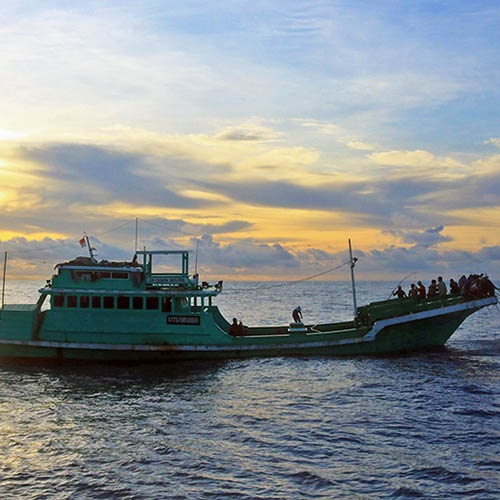Applying the MSC Fisheries Standard’s scoring requirements to species groups such as squid, crab and octopus can be complicated.
Species such as crab and cephalopod (squid and octopus) are particularly sensitive to environmental factors (currents and temperatures) and have short life spans, resulting in a large variation in their population size year-on-year, which makes it difficult to assess stock health. This means these species are not always managed around the Maximum Sustainable Yield (MSY) level.
Squid, crab and octopus fisheries are currently under-represented in the MSC Fisheries Standard program. Increasing engagement of these fisheries could play a key role in ensuring sustainability in some large marine ecosystems.
How has our Standard changed?
An initial review concluded that the Fisheries Standard is appropriate for the assessment of squid, crab and octopus, and that species-specific assessment trees are not required. However, the new version of the Standard contains guidance to further clarify our intent for these fisheries assessment and improve accessibility of the Standard for these fisheries.
New requirements allow proxy methods to be used as alternative reference points to the MSY, which will ensure these species are still being targeted at a sustainable level.
Additional guidance has been developed to aid the assessment of squid, specifically in relation to the use of proxies, this will demonstrate the stock status of squid is at a level consistent with maximum sustainable yield.
Further guidance has been prepared for crab fisheries consisting of male-only harvest, to protect the reproductive potential of the population.
As with squid and crabs, there is additional guidance for octopus fisheries, to better allow assessment teams to apply the requirements to these species.
Fisheries Standard 3.0 implementation
Developing our policies
In 2022, we published Version 3.0 of the MSC Fisheries Standard following the most comprehensive review to date.
The development of the Standard follows public consultation on key aspects of the review, including a 60-day public review of the draft Standard and all associated documents.
We also commissioned independent research and carried out data analysis and impact assessments to determine whether proposals are feasible and deliver our stated intentions. We also sought advice and input from our governance bodies throughout the process.
Follow the links below to find out more about the different inputs which contributed to the development of our new guidance to clarify the assessment of squid, crab and octopus fisheries:

MSC Fisheries Standard version 3.0
An overview of the changes made to our Standard.

Fisheries Program Documents
The MSC Fisheries Standard and General Certification Requirements.

.tmb-labelhome.jpg?Status=Master&Culture=en&sfvrsn=39466bd9_3)